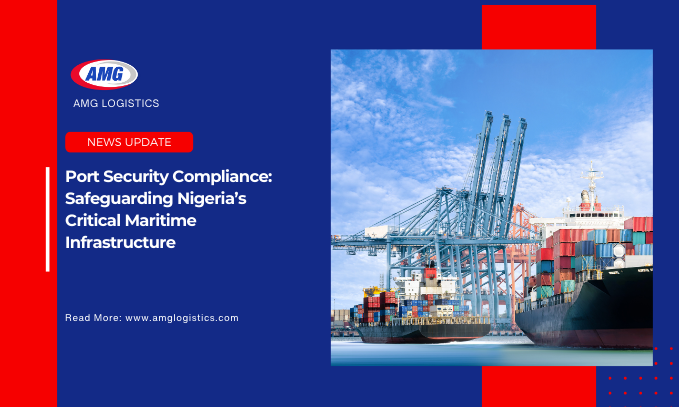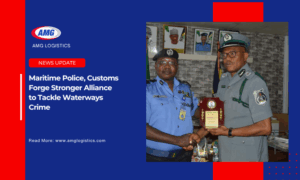Introduction and Historical Context
Maritime security is critical for the sustainable growth of global commerce, with approximately 90% of goods supporting the world economy transported through oceanic routes. For Nigeria, one of the largest maritime economies in West Africa, port security goes beyond national security. It underpins financial stability and strategic national growth. The sea holds a wealth of resources for the survival of today’s and future generations. While Nigeria is growing into an exporter of petroleum products, an importer of commodities, and an anchor for regional commerce, maritime security has become a significant concern. All these should be in mind, especially when considering the security issues that have influenced modern security procedures. Notable incidents include:
- The USS Cole attack in 2000
- The M/V Limburg incident in 2002
- Terrorist activities in Southeast Asian waters by groups like Jemaah Islamiah & Abu Sayyaf
- Attack on U.S.-controlled oil facilities at Basra by Iraqi insurgents in 2004, which resulted in the deaths of three American servicemen
The catastrophic events of September 11, 2001, when Al-Qaeda carried out synchronized terrorist attacks on the World Trade Center and the Pentagon in the United States, became a watershed moment in the global approach to maritime security policies. This event compelled nations to develop more integrative and stringent security policies to prevent and suppress terror and other criminal acts around maritime infrastructure, territorial waters, and high seas. Nigeria possesses extraordinary maritime endowments, including over 853 nautical miles of coastline and a network of ports and inland waterways that provide vital access to international shipping. The country is part of the African Atlantic Countries, which include Morocco, Mauritania, Senegal, Gambia, Cape Verde, Guinea, Guinea Bissau, Sierra Leone, Liberia, Côte d’Ivoire, Ghana, Togo, Benin, and Cameroon. Given the strategic position of Nigerian ports, any breach in security can have significant consequences, not just for Nigeria but for the entire global maritime industry. The ports are essential for the oil and gas exports, which underpin the country’s economy. Hence, it is necessary to insulate such infrastructures against changing threats.
Conceptual Framework and Challenges of Port Security
Port security represents a multifaceted protective strategy involving regulations, protocols, and technological interventions. It goes beyond physical infrastructure protection, including sophisticated access control, vessel security monitoring, cargo tracking, and advanced threat detection mechanisms. Port security refers to the protective measures, regulations, and protocols to safeguard maritime infrastructure, cargo, vessels, and personnel from security threats. These threats can range from physical attacks, such as piracy or terrorism, to illegal activities like smuggling, human trafficking, and cyberattacks on port systems. Ports are nodal points for every intermodal logistical supply chain and are crucial in securing the maritime transport system and supply chains. As Ng and Gujar (2008) defined, port security includes all security and counter-terrorism activities within the port’s domain, including protecting port facilities and coordinating security activities when ship and port interact. The scope of port security extends beyond the physical protection of infrastructure. It also encompasses:
- Regulation of access to ports
- Security of vessels docked or anchored nearby
- Monitoring of cargo and personnel movement
- Use of technology to detect and respond to threats
Compliance with international frameworks, such as the International Ship and Port Facility Security (ISPS) Code, is critical to achieving global port security standards. The ISPS Code, developed by the International Maritime Organization (IMO), sets guidelines for governments, port authorities, and shipping companies to collaborate on maintaining port security by implementing risk assessments and preventive measures. Port security measures should be structured to provide effective and efficient landside operations and patrols of ports’ harbors, anchorages, and waterways. In today’s interconnected world, ports have also become targets for cyber threats, which can disrupt digital systems that control shipping, logistics, and port operations. Cybersecurity has become integral to port security as ports modernize and integrate more digital solutions. Nigeria confronts unique maritime security challenges characterized by intensifying threats in its coastal waters and the Gulf of Guinea. Piracy, hijacking, kidnapping, and systematic oil theft pose significant economic and reputational risks. The country’s extensive coastline and logistical geographical positioning expose it to maritime criminal activities.
Maritime Infrastructure and Safeguarding Strategies
Maritime infrastructure refers to the physical and organizational structures that support the operations and services related to maritime activities, including transporting goods and people by sea. This infrastructure is critical to global trade, economic development, and national connectivity. The concept of critical infrastructure, including maritime infrastructure, remains weakly defined. The term “infrastructure” originated in planning railroads in the 19th century but only came into common usage in policy debates in the 1950s. While there’s general agreement that elements like electricity grids or pipelines are infrastructure, including laws, standards, and maintenance workers in this definition remains controversial. The European Union defines critical infrastructure as “an asset, system, or part thereof […] which is essential for the maintenance of vital societal functions, health, safety, security, economic or well-being of people, and the disruption or destruction of which would have a significant impact […] as a result of the failure to maintain those functions. Maritime infrastructure includes key assets such as:
- Shipping: Port facilities, LNG terminals, shipping lanes, navigational aids, and ships.
- Energy: Fixed installations at sea (oil and gas platforms, windfarms), underwater pipelines and cables, and their connecting points on shore.
- Communication: Undersea optic fiber cables and their landing stations.
- Fishing: Fishing ports, vessels, and aquaculture farms.
- Marine biodiversity: Increasingly recognized for its importance in climate change mitigation and carbon storage.
As a core component of maritime infrastructure, seaports act as the entry and exit points for goods transported by sea, serving as hubs for importing and exporting goods, refueling, maintenance, and trade-related services. These ports are often interconnected with other forms of transportation, such as railways, highways, and airports, forming part of a larger global logistics chain. Beyond the physical structures, maritime infrastructure also includes the digital and regulatory frameworks that ensure maritime activities’ safe and efficient functioning. Advanced technologies such as GPS navigation, port management software, automated cranes, and cybersecurity systems have become integral to modern maritime infrastructure. Safeguarding refers to the proactive measures and processes to protect valuable assets, people, and systems from harm, loss, or exploitation. In maritime infrastructure, safeguarding becomes critical due to the potential for large-scale economic and social consequences if security measures fail. Effective maritime infrastructure safeguarding involves:
- Identifying potential threats and vulnerabilities
- Assessing associated risks
- Establishing safeguards to mitigate or eliminate these risks
- Implementing monitoring, surveillance, and access control measures
- Developing contingency plans for prompt threat response
The process demands coordinated efforts across government agencies, private sector stakeholders, and international maritime organizations. Collaboration is essential in complex environments like ports, where multiple stakeholders are involved. This cooperation ensures that risks are comprehensively anticipated and mitigated, fostering a culture of resilience and protection across the system.
Economic Implications and Future Outlook
Maintaining robust port security compliance for Nigeria is not merely a defensive strategy but a fundamental economic imperative. The potential disruption of maritime infrastructure can have cascading consequences on national economic stability, regional trade dynamics, and international commercial relationships. Addressing maritime security challenges necessitates robust international collaboration. The interconnected nature of global maritime trade demands coordinated strategies, shared intelligence, and harmonized security protocols. International organizations like the International Maritime Organization play pivotal roles in developing and implementing global maritime security standards. Modern port security increasingly relies on advanced technological solutions. Integrated technologies like GPS navigation, sophisticated port management software, automated cargo handling systems, and comprehensive cybersecurity protocols are now essential elements of comprehensive maritime security frameworks. Moving forward, Nigeria must continue investing in comprehensive maritime security strategies. This involves:
- Continuous technological upgrades
- Personnel training
- Regulatory framework enhancement
- Promoting collaborative partnerships, particularly among government agencies, and engaging private sector organizations.
Port security compliance represents a dynamic, complex challenge requiring continuous adaptation and strategic thinking. For Nigeria, maritime security is protecting its infrastructure and building an effective, robust marine ecosystem that would help ensure economic growth and national development. With advanced technologies, global best practices, and a multifaceted security mindset, Nigeria could shift its maritime infrastructure from a potential danger into a national asset. This effort towards promoting port security will protect Nigeria’s shipping infrastructure and secure its position in the international maritime sector to make global trade safe and efficient.





